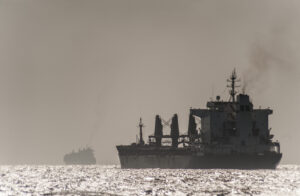Belgium is set to ban the export of toxic motor fuels similar to the measure in the Netherlands, according to an announcement from Minister of the Climate, the Environment, Sustainable Development and Green Deal Zakia Khattabi.
This move involves cooperation between Khattabi, Energy Minister Tinne Van der Straeten, and Public Health Minister, Frank Vandenbroucke.
The Belgian government plans to publish a royal decree that targets oil companies that export motor fuels with excessively high sulphur or benzene content worldwide.
The ports had been used by oil companies to export these fuels to destinations including Africa.
The decree, already signed, mirrors a similar move in the Netherlands to bring a halt to the export of these so-called “dirty fuels.”
“These are fuels that have long been banned in Europe due to their harmful effects on public health and the environment,” the environment ministry said in a statement.
As highlighted by Environment Minister Zakia Khattabi, there is a risk that the trade has shifted to Belgium because the Netherlands already restricted the export of these “dirty fuels.”
“For far too long, toxic fuels have been departing from Belgium to destinations including Africa. They cause extremely poor air quality in countries such as Ghana, Nigeria and Cameroon and are even carcinogenic,” writes the statement of Khattabi.
The new regulation will take effect three months after the publication of the Royal Decree. The responsible ministers received a positive opinion from the Council of State. The Minister of Environment is working on the Royal Decree in collaboration with the Minister of Energy and the Minister of Public Health.
Energy Minister Tinne Van der Straeten said, among other things, that “since the oil companies concerned will not take this responsibility on their own, we call on the administration to introduce controls on exported fuels.”
From his side Public Health Minister, Frank Vandenbroucke highlighted that “with this royal decree we now ensure that products that are not allowed in Europe due to their harmfulness are also prohibited for export.”



